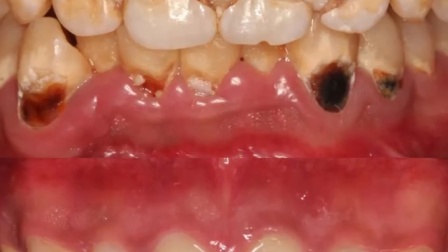After 95, the woman's nasal congestion was found to be cancer after 2 months
In our country, nasopharyngeal cancer is a common and serious malignant tumor. According to statistics, the number of patients with nasopharyngeal cancer in our country accounts for almost half of the total number of patients in the world, which is shocking. What is more worrying is that the distribution of nasopharyngeal cancer in our country shows a trend of "high in the south and low in the north", that is, the incidence rate in the southern region is significantly higher than that in the northern region.

The occurrence of nasopharyngeal carcinoma is related to a variety of factors, the most crucial of which is genetic factors. Studies have found that there are often multiple nasopharyngeal carcinoma patients in the family of nasopharyngeal carcinoma patients, indicating that genetic factors play an important role in the occurrence of nasopharyngeal carcinoma. In addition, environmental factors, lifestyle habits and diet are also important factors that lead to nasopharyngeal cancer.
In terms of genetic factors, the higher incidence of nasopharyngeal cancer in the southern part of our country, especially in Guangdong Province and Guangxi Zhuang Autonomous Region, is related to the genetic genes carried by local residents. Studies have found that these genetic genes may lead to a decline in human immunity, thereby increasing the risk of nasopharyngeal cancer.
In terms of environmental factors, the water, air and soil pollution in the southern region are more serious, and these pollutants may inhibit the human immune system and cause nasopharyngeal cancer. In addition, the humid climate in the southern region is conducive to the growth of viruses and bacteria, which also provides conditions for the occurrence of nasopharyngeal cancer.
In terms of living habits and dietary structure, residents in the southern region generally have bad living habits such as smoking, drinking alcohol and pickled food. These habits may lead to a decline in human immunity and increase the risk of nasopharyngeal cancer. At the same time, the diet structure in the southern region is mainly high in salt, fat and sugar. These foods may irritate the mouth, throat and other parts, increasing the probability of nasopharyngeal cancer.
For the treatment of nasopharyngeal carcinoma, the medical community in our country has achieved remarkable results. At present, radiotherapy, chemotherapy and surgery are the main methods for the treatment of nasopharyngeal carcinoma. However, because the early symptoms of nasopharyngeal carcinoma are not obvious, many patients are already in the late stage when they are found, and the treatment effect is poor.
In order to reduce the incidence of nasopharyngeal cancer, the government of our country and all sectors of society should work together to strengthen publicity and education to raise people's awareness of nasopharyngeal cancer. At the same time, strengthen the control of water, air and soil pollution in the southern region, and improve the living environment of residents. In addition, advocate a healthy lifestyle, promote a reasonable diet, and reduce the risk of nasopharyngeal cancer.
In short, nasopharyngeal cancer is a serious malignant tumor in our country, and its high morbidity and mortality are worrying. Understanding the causes, transmission routes and preventive measures of nasopharyngeal cancer is of great significance to reducing the incidence of nasopharyngeal cancer. With the joint efforts of the whole society, we are confident to defeat this malignant tumor and escort the health of the people.